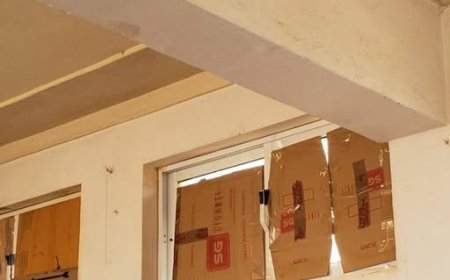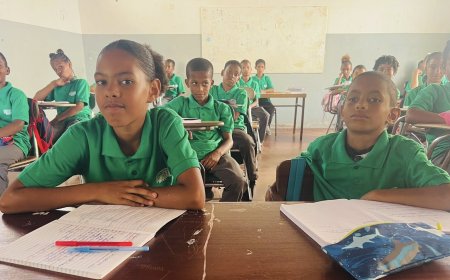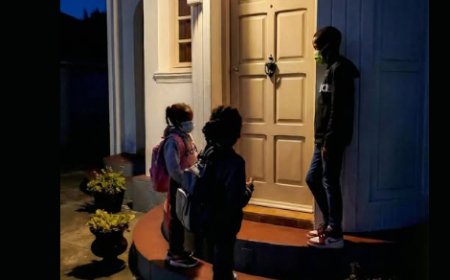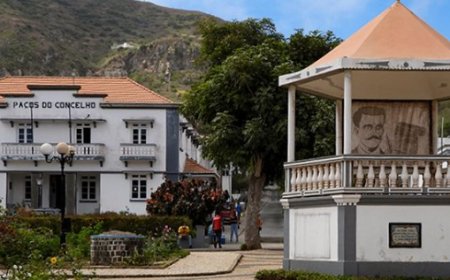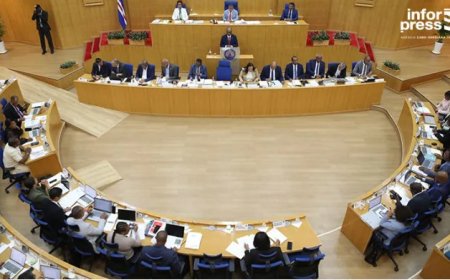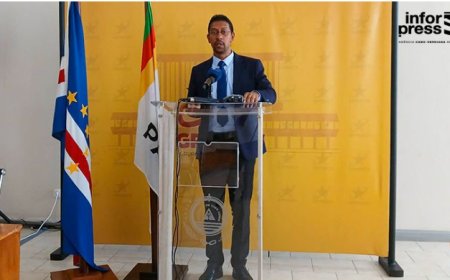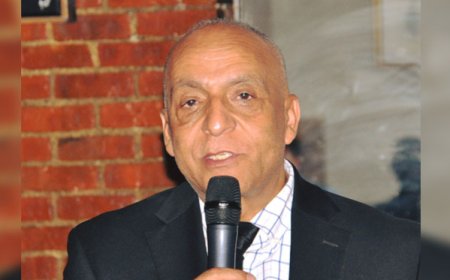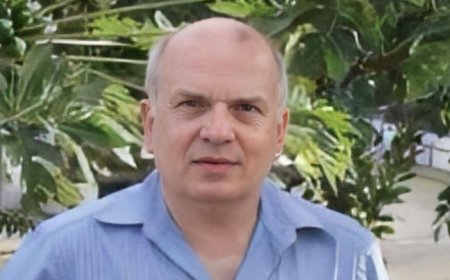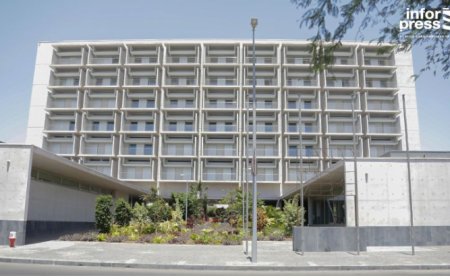Judges of the Supreme Court of Justice refuse to attend solemn acts
The judges of the STJ declared today that, as long as the climate of “disregard for the dignity of the judicial power and its holders” is maintained, they will not be present at solemn acts to which they must attend due to institutional courtesy.
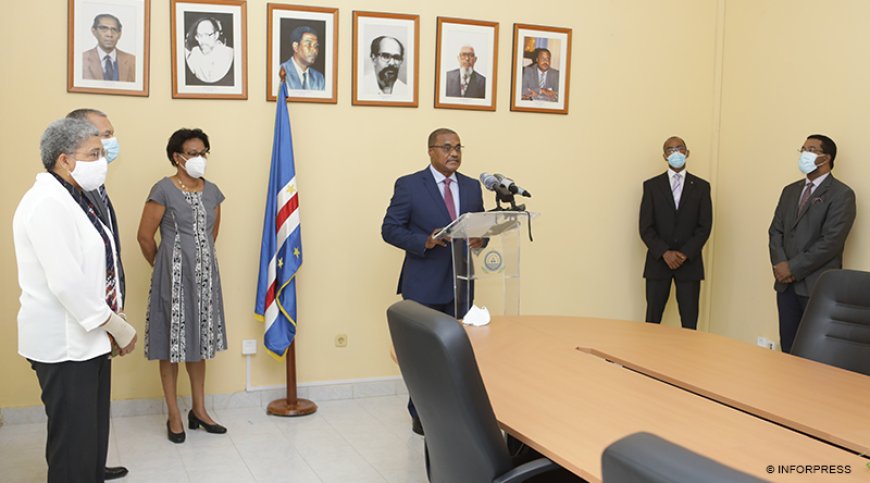
The judges of the STJ declared today that, as long as the climate of “disregard for the dignity of the judicial power and its holders” is maintained, they will not be present at solemn acts to which they must attend due to institutional courtesy.
“…As long as the climate of institutional hostility and disregard for the dignity of the judiciary and its holders is maintained in Cape Verde, the conditions for the presence of advisory judges of the STJ [Supreme Court of Justice] at any act or ceremony will not be met. to which they must attend due to institutional courtesy”, said spokesperson Benfeito Mosso Ramos, surrounded by the other five colleagues who make up the STJ.
The counselor judge made these considerations in a statement to the press to, according to him, react to one of the “most outrageous attacks”, on the judicial power, “of which we have memory” in Cape Verde.
He recalled that the aforementioned situation occurred on the 29th of October, during the parliamentary debate on the State of Justice.
According to him, an “illustrious deputy of the Nation” [Mercéa Delgado, elected on the lists of the Movement for Democracy (MpD-poder)], “on the pretext of expressing what could well be legitimate concerns about the functioning of judicial institutions”, took advantage of to resume, with “an undisguised purpose, the improprieties that have been leveled against certain judicial magistrates, some of whom exercise in the highest judicial instance, as is the case of the venerable president of the Supreme Court of Justice”.
For the STJ collective, it is "without the slightest doubt", the right of the representatives of the Nation, as well as of any citizen, to criticize and draw attention to the "dysfunctions of Justice, appealing, if necessary, for the implementation of the responsibilities imposed”.
“What no longer seems at all admissible in a Rule of Law is that this democratic scrutiny be used to make extrapolations, aiming to tarnish the good name of magistrates, in violation, from the outset, of the right to honor that the Constitution of the Republic recognizes to all citizens”, deplored the judges of the STJ.
In the statement, they underlined that, in the case in question, the parliamentary mandate was used to “lend official seal to what, today, nobody doubts, constitutes a well-crafted plan to denigrate the personal and professional reputation of magistrates”.
For the STJ spokesperson, such a plan appears as a form of “retaliation” for the judges’ decisions, adding that this “could never find comfort in anyone who is the holder of a sovereign body and in the seat of a sovereign body, as it is the National Assembly”.
“It also arouses indignation that, during the said intervention, at no time was a voice heard, a single voice, inviting the illustrious deputy to respect the good name of defenseless citizens, in this case judicial magistrates who, in that case, quality, they are holders of a sovereign body like the deputies”, lamented the judges of the STJ panel.
These magistrates consider, even more serious, the fact that, 27 days after the intervention of the parliamentarian Mercéa Delgado, there is no knowledge of any “demarcation in relation to this affront to the dignity of the judiciary”.
According to the aphorism 'whoever is silent consents', the judges said, it is assumed that the intervention of the aforementioned deputy ended up “deserving the approval of those who, for reasons of principle and/or their constitutional responsibilities, cannot compromise with such a situation”.
From the perspective of the STJ judges, the attack on magistrates “is no longer surprising in Cape Verde”, given the “increasing attacks on Justice and magistrates by those who believe they are above the law and who have had comfortable support in the highest political instances of the Republic”.
“…The international credibility enjoyed by the Rule of Law instituted in Cape Verde, one of the great assets of our Republic, is also, and to a certain extent, due to the seriousness of its judicial institutions, in particular the recognized independence of its Judiciary. , with the Supreme Court of Justice at the head”, indicated the judges, concluding that “there is no known case in the world of a credible State of Law that is not endowed with institutions, also credible, which, in fact, constitute one of the traits of the their identity”.
The statement presented to the press was unanimously approved this Tuesday, with the exception of the president of the STJ, Fátima Coronel, who did not participate in the meeting, according to the spokesperson.


















